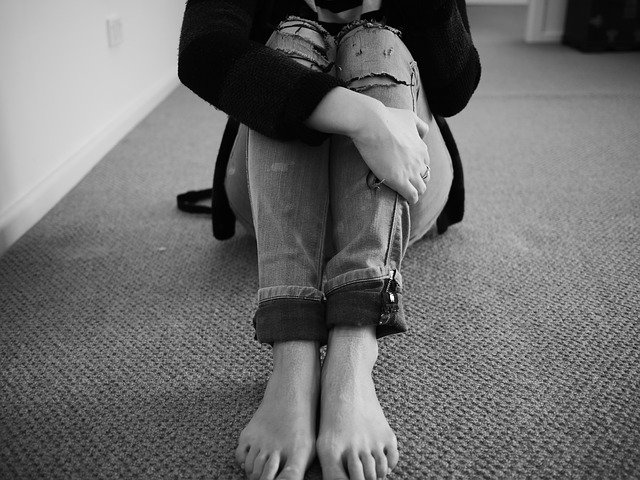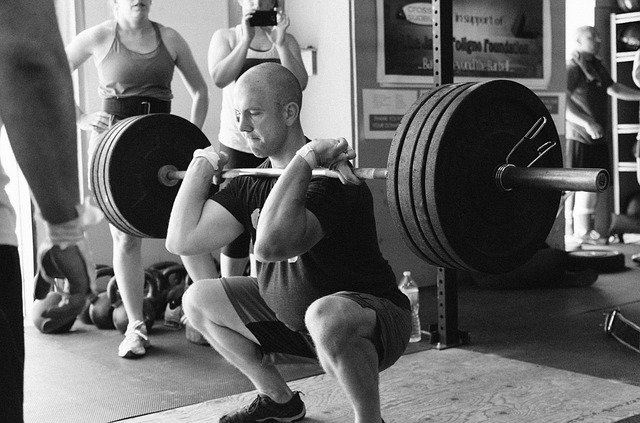 Reading Time: 7 minutes
Reading Time: 7 minutesIn my psychotherapy practice, I am prone to borrowing a phrase I initially learned from Eastern philosophy: simple, but not easy. When it comes to human suffering, we often have ideas regarding the alleviation of that suffering that seem to be pretty simple. Ideas like boundaries, assertiveness, self-care, self-compassion, or forgiveness. But when it comes to execution, these strategies all fit into the category of simple, but not easy.
This begs the question, “Why is it we cannot simply do things that are good for us?” Buddhism provides us with another simple, but not easy response. We suffer because we become attached to impermanent and unhealthy aspects of our life, and we do not know how to see the truth of that impermanence.
In this writing, we are going to let the Second Noble Truth of Buddhism be our guide in understanding the role we play in our own discomfort. By understanding our role, we can then take responsibility and make a choice to liberate ourselves from unnecessary suffering.
The common translation of the Second Noble Truth is, “The cause of our suffering is attachment.” So, first, we must look at what we are overly attached to. Identifying the major thoughts, behaviors, and associated emotions that cause us discomfort means we can become better at sorting through all that information. This process allows us to be more discerning about what deserves our energy and what we can allow to float away. At that point, we can look at how simply being caring, attentive, loving, and forgiving to ourselves will move us beyond our old behaviors.
What Is Attachment?
Attachment is our safety net and our villain. Our caretaker and persecutor. Attachment is an aspect of personality that none of us will escape, and it is a driving force behind most of our discomfort.
As an exercise, think of the last goal you had that created self-criticism or an unforgiving process. Focus on a self-improvement goal. Maybe it involved weight loss, reflective practice, or even a personal record in the weight room. Now, think of how you punished yourself for not accomplishing your task. Maybe you started to focus on self-doubt. Maybe you became critical for missing days. Maybe you suffered an injury in your pursuit. Did you isolate, give up on something that previously mattered, leave yourself in your time of need, lose interest, or create a mindset of shame?
Clearly the list of potential responses you could have had to your situation is lengthy. All of these responses are the result of attachment. We are attached to the idea that an arbitrary goal can become concrete evidence of our success, acceptance, or love. This is the side of attachment we all fall for, and this is what prevents our enlightenment in this second noble truth.
Most of us are clinging to ideas that we have a concrete and permanent self. We have the idea there is a version of us that all people see, all opinions lead to, and all people respond to – and this is a falsehood. We are not the sum of those exterior elements and we are ever-evolving. To be able to alleviate suffering and reduce attachment we have to accept that we, like all things, are in a constant stage of change.
No Goal But Acceptance
Nowhere is the suffering due to attachment more evident than our time in the gym. It is here we begin to see patterns of ego, and it is here we begin to author our own suffering.
The first thing we typically do is create goals without acceptance. Acceptance is best defined as the ability to tolerate discomfort long enough to make that discomfort productive. But many of us create goals without having a truly accepting relationship with ourselves. Many people set goals like losing weight, gaining strength, or even starting a daily meditation practice without first addressing their relationship with themselves. This leaves us susceptible to the belief that achieving a certain goal will alleviate our pain and discomfort.
This approach avoids the reality of our current limitations, and denies us a chance for growth. The goal itself will always be fleeting and prone to our existing patterns of criticism, shame and judgment. Goal setting without self-awareness is like exercising with a poor diet. Changes will happen, but they will feel empty.
We must be able to pattern our goal setting on the reality of the present. This is where we are most likely to fall apart. Without full self-acceptance, we will set goals aimed to please an external pattern. This does not mean we should give up on the dream of a 600lb deadlift. This means we approach that dream in the truth of the current reality so we do not create another form of clinging and suffering. We cannot lift 600lb today, so we should not be angry with ourselves when it does not happen. We cannot weigh twenty pound less overnight, so we should not judge ourselves on what the scale says today.
Instead, we can set goals based on curiosity about where we are right now. What can we lift today and why or why not? This helps us accept the need to address details like technique, hand placement, foot placement, endurance, and other minute bricks that build the wall. Without this curiosity and self-acceptance, we simply create goals that are a means to bottomless attachment.
If you are incapable of accepting yourself and the tedious nature of change, then welcome to the beginning. If you are someone who has been able to roll with change, alter your plan, and see tangible goals, then welcome to the beginning. Attachment creates self and ego, and the royal road to this attachment and suffering is paved with thoughts of absolute knowledge. Attachment to programming, movements, gyms, or gurus is how the ego goes from supportive goal-setter to predatory warden. There is no one right way – there is the way that works for you, and specifically, the you of today.
Finding Your Journey Without Finding Shame
Fortunately, the genuine authentic part of always knew this attachment is ever present. There are simply times where our delusion is making decisions and not us. Our deluded self finds evidence that supports its concrete existence and pursues it feverishly. We then turn that pursuit into truth, and from there we continue on a path of occasional payoff with a tendency toward shame.
Shame is our tendency to feel there is something about us that makes us unacceptable. It is the idea that if people knew certain things they would choose to reject us. This is a barrier to authenticity because it clouds the reality that we are already perfect, luminous beings. (Which we are, by the way.) Anything that clouds this reality is a form of suffering and attachment.
Our true self knows the nature of our limitlessness and the associated potential. This starts to become apparent when we let go of an overly attached and critical self in exchange for full acceptance of our ability to be loved for our genuine nature.
Let’s go back to the topic of exercise for a moment. Think of a time where you set a goal or had a pursuit that you now consider naïve, or worse, unnecessary. We have all had those goals, and we have all turned them into proof of whether we were capable or incapable. Rather than accepting the skill and resiliency we have built, we see another feat and decide that if we are able to accomplish that then we will be strong.
Yet within days or months that previous accomplishment is no longer considered a benchmark of ability. Running a half marathon goes from proof of our physical acumen to shame because it’s not a full marathon. This is forgetting the true nature of practice. We forget it is our ability to see a new side of our resiliency that creates our sense of self as opposed to a particular fleeting goal. Maybe it was the suffering that was the true goal. Maybe it was the opportunity to have a journey that allowed us to learn.
Buddha said all he taught was, “Suffering and the cessation of suffering.” Self-criticism and shame are simply specks of dirt on the mirror that is our true nature. When we push ourselves it is so we can polish the mirror. It is not so we can perfect the reflection.
Love the Process – Love Yourself
If all that is true, then our journey provides us with a learning opportunity at every turn, with every goal, regardless of outcome. This is the basis for learning the second noble truth. The idea that when we are given the opportunity, we lean toward attachment. We lean in the direction of forcing old habits to be truths, and therefore failure is the only outcome — unless we learn to love our process and its fluid nature. If we are the authors of this attachment in our training, we can be the editors that make our training more meaningful.
It is time we take back our purpose and develop the ability to leave these attachments behind in exchange for the reclamation of our true and authentic strength.








